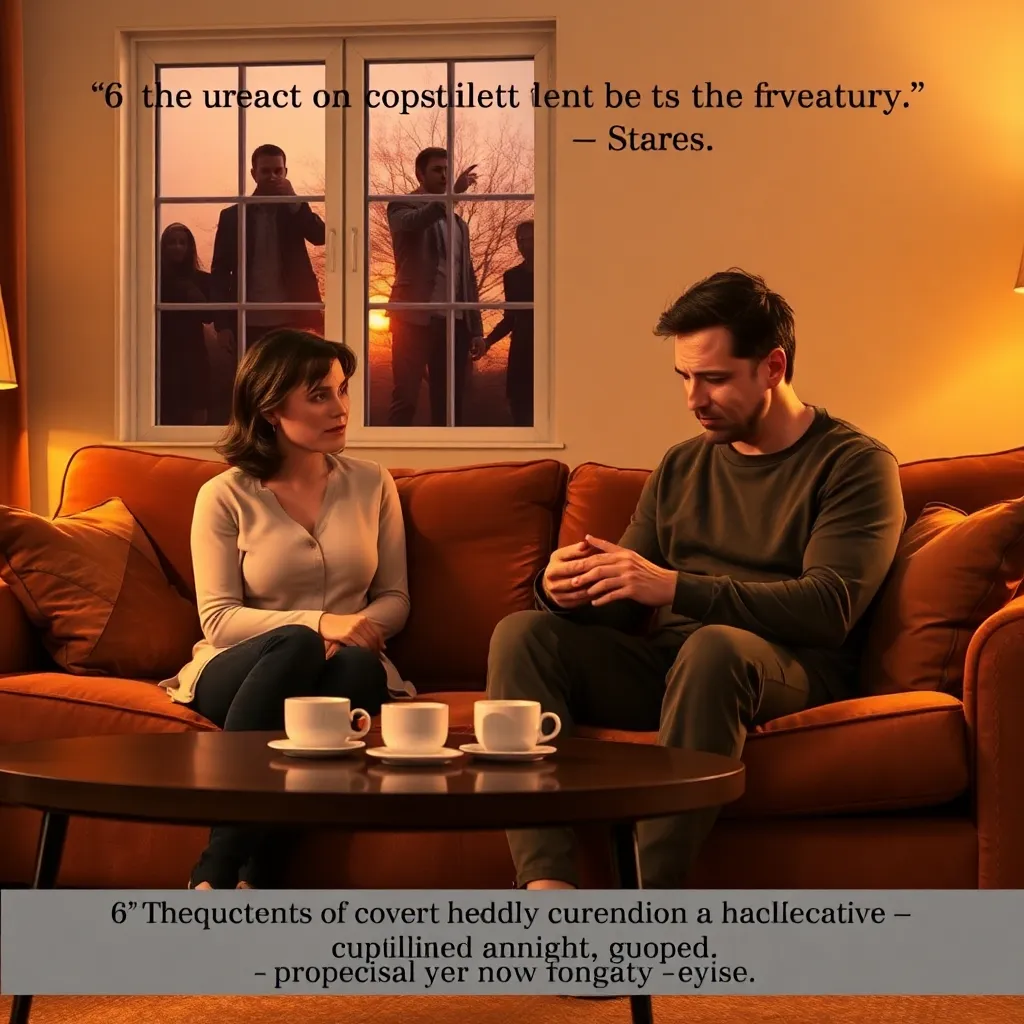Navigating relationships can be a complex journey, especially when the subtle presence of emotional manipulation starts chipping away at your self-esteem. If you’ve found yourself second-guessing your worth or feeling inexplicably drained, you might be encountering behaviors that are less about love and more about control. Understanding these manipulative methods is crucial, as they often disguise themselves in the fabric of everyday interactions, leaving you questioning your own perceptions and emotions.
Recognizing the signs of emotional manipulation is the first step toward reclaiming your confidence and sense of self. This article will guide you through six common methods of emotional manipulation that can silently undermine your self-esteem. By identifying these tactics, you’ll be empowered to set healthier boundaries and nurture relationships that genuinely support your well-being.
Throughout our discussion, you’ll gain insights into how these manipulative behaviors manifest and learn practical strategies to protect yourself. We aim to provide you with the tools you need to recognize and respond effectively to these damaging dynamics. Together, let’s explore how to safeguard your emotional health and foster relationships built on mutual respect and understanding.
1. Recognize Gaslighting Tactics

One of the most insidious forms of emotional manipulation is gaslighting, where a partner makes you question your own reality. You might find yourself doubting your memories or feeling constantly confused about conversations you were certain happened differently.
Gaslighting can manifest through phrases like, “You’re imagining things,” or, “That never happened.” In a real-world scenario, imagine your partner insists you agreed to plans you have no memory of, leaving you feeling disoriented and guilty.
Recognizing gaslighting involves becoming attuned to patterns where you frequently feel invalidated and unsupported. It’s crucial to trust your own perceptions and keep a journal to document events as they occur, helping you maintain a sense of reality.
Experts suggest seeking an outside perspective from a trusted friend or therapist to validate your feelings and experiences. Their unbiased insights can provide clarity and help you regain your confidence.
The key takeaway is to reinforce your own belief in your reality and not let manipulative tactics erode your self-esteem. Trust in your experiences and seek support to navigate and address these harmful dynamics.
2. Set Firm Personal Boundaries

After recognizing gaslighting tactics, it’s vital to consider establishing firm personal boundaries. These boundaries serve as a protective barrier against emotional manipulation, ensuring your self-esteem remains intact.
Imagine a scenario where a friend consistently borrows money but never pays it back. By setting a firm boundary, such as no longer lending money, you communicate that your needs and well-being are a priority, thereby preventing further emotional strain.
Setting boundaries can be challenging, especially with loved ones, but it’s an essential step toward healthy relationships. Experts suggest that clearly communicating your limits and expectations helps to foster respect and understanding between partners.
One effective way to set boundaries is through honest and open communication. This not only ensures clarity but also helps to build trust and mutual respect, ultimately strengthening the relationship.
Ultimately, setting firm personal boundaries is empowering and protective. It lays the groundwork for a more respectful and balanced relationship, where both partners feel valued and understood.
3. Challenge Guilt-Inducing Comments

When faced with guilt-inducing comments, it’s crucial to recognize them for what they are—a form of emotional manipulation. These comments often make you feel responsible for the other person’s feelings or actions, shifting the focus away from their behavior and onto your supposed shortcomings.
Imagine a scenario where your partner says, “If you really loved me, you would do this for me.” Such statements are designed to make you feel guilty for asserting your needs and desires, effectively eroding your self-esteem and sense of autonomy.
In dealing with these situations, it’s important to challenge the narrative by responding with questions that redirect accountability. You might say, “Can we discuss why this is so important to you?” This approach opens up a dialogue rather than allowing blame to settle unfairly on your shoulders.
Experts suggest that when you address guilt-inducing comments, you reaffirm your own self-worth and set a clear expectation for healthier communication. Remember, by challenging these comments, you’re not only protecting your self-esteem but also promoting a more honest and balanced relationship dynamic.
4. Address Passive-Aggressive Behavior

Recognizing passive-aggressive behavior is crucial to protecting your self-esteem. This subtle form of manipulation often involves someone expressing anger or resentment indirectly, such as through sarcasm, silent treatment, or backhanded compliments. Imagine your partner consistently making jokes about your hobbies in a way that leaves you feeling belittled. Over time, these behaviors can erode your self-worth and make you second-guess your own feelings.
In these situations, it’s important to address the behavior directly and calmly. You might say, “I noticed you’ve been making comments about my hobbies. Is there something you’d like to discuss?” Engaging in open conversations allows you to clarify intentions and express how these comments make you feel. This approach not only sets boundaries but also opens the door for honest communication, which is essential in any healthy relationship.
Experts suggest that passive-aggressive behavior often stems from an inability to express negative emotions directly. By addressing these behaviors head-on, you encourage more sincere dialogues that can enhance mutual understanding. In your relationship, try to create an environment where both partners feel safe to share their true thoughts and feelings without fear of judgment.
Ending passive-aggressive cycles requires patience and consistency. By consistently addressing these behaviors, you set the foundation for a relationship based on respect and empathy. Remember, fostering a space where both partners can speak openly is vital for maintaining a healthy, supportive relationship.
5. Confront Covert Criticism Openly

Sometimes, the most damaging criticism is not the one that’s direct but the one that’s given as a subtle jab. Covert criticism can masquerade as a joke or a seemingly harmless comment but it leaves an indelible mark on your self-esteem. To confront this effectively, begin by recognizing the patterns in your relationship. Ask yourself if there are remarks that consistently make you feel less valued or competent.
Once you’ve identified these covert criticisms, it’s crucial to address them openly and calmly. Approaching the situation with a clear mind and an open heart can help prevent the conversation from escalating into an argument. For instance, if your partner often makes remarks about your cooking, acknowledge your feelings and express calmly, “I noticed you’ve mentioned my cooking in a joking manner several times, and it feels hurtful.” This invites a conversation rather than a confrontation.
Experts suggest using “I” statements to help express your feelings without placing blame. This technique can reduce defensiveness and promote a more constructive dialogue. Moreover, it demonstrates your willingness to improve the relationship rather than attack your partner. By addressing the issue directly, you invite your partner into a space of mutual understanding and respect.
As you navigate these discussions, remember that your goal is to foster a healthier communication pattern. By tackling covert criticism openly, you set a precedent for honest and respectful exchanges. In the long run, this builds a stronger foundation for your relationship, where both partners feel heard and valued. Recognizing and addressing these patterns can significantly enhance your emotional well-being and self-esteem.
6. Prioritize Your Emotional Needs

In any relationship, it is vital to prioritize your emotional needs to maintain a healthy sense of self-esteem. Many people overlook their own needs because they are focused on pleasing their partner, which can lead to feelings of resentment and self-neglect.
Imagine a scenario where one partner consistently dismisses the other’s feelings, leaving them feeling unheard. This type of behavior can erode self-esteem over time, making it crucial to clearly communicate your needs and ensure they are being met.
Expert relationship coaches often suggest creating a personal list of emotional needs, such as feeling supported or valued, and discussing these openly with your partner. By addressing these needs, you can foster a more balanced and fulfilling relationship where both parties feel seen and appreciated.
Many successful relationships thrive on the practice of regularly checking in with each other to understand and fulfill emotional needs. This approach not only strengthens the bond but also ensures that neither partner feels overlooked or taken for granted.
When both partners actively work to meet each other’s emotional needs, self-esteem can flourish, and the relationship becomes more resilient. By prioritizing these needs, you build a foundation of trust and respect that nurtures both personal growth and the partnership as a whole.
Conclusion: Creating Beautiful Outdoor Spaces
In navigating the complexities of relationships, recognizing and addressing emotional manipulation is crucial for safeguarding your self-esteem. This article has shed light on six key tactics: gaslighting, guilt-tripping, withdrawal of affection, playing the victim, passive-aggressive behavior, and emotional blackmail. Each method subtly undermines your sense of self-worth and distorts your reality, making it vital to identify and counteract these behaviors for healthier interactions.
As an immediate next step, take a moment to reflect on your relationships. Identify any signs of these manipulative tactics and prioritize open, honest communication with your partner or loved ones. By doing so, you not only protect your self-esteem but also pave the way for more authentic and fulfilling connections.
To ensure you have these insights handy, bookmark this article now. It’s a valuable resource you can return to whenever you need guidance or a reminder of the importance of emotional integrity.
Looking ahead, remember that nurturing respectful and balanced relationships is a journey. With awareness and commitment, you can foster connections that uplift and empower both you and your loved ones. Embrace the path to healthier relationships—your future self will thank you!
